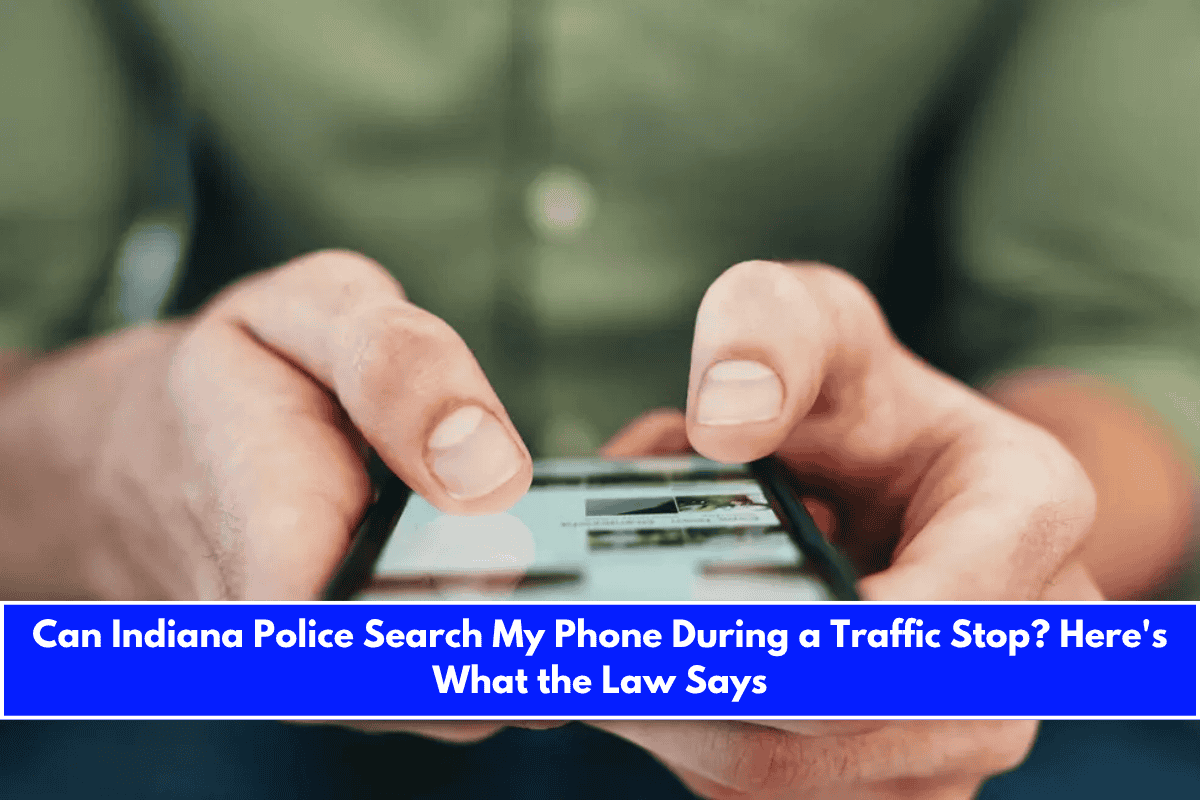Understanding your rights during a traffic stop in Indiana is crucial, especially when it comes to your personal electronic devices. Here’s a breakdown of what the law says about police searching your phone if you’re pulled over.
Fourth Amendment Protections and Indiana Law
Both the U.S. Constitution’s Fourth Amendment and the Indiana Constitution protect you from unreasonable searches and seizures. This means police generally cannot search your property-including your phone-without a warrant, your consent, or probable cause.
When Can Police Search Your Phone?
Police in Indiana cannot search your phone during a traffic stop unless one of the following applies:
- You Give Consent: If you voluntarily hand over your phone or agree to a search, officers can look through it. However, you are not required to consent, and you have the right to politely refuse.
- Probable Cause Exists: If officers have strong evidence that a crime has been committed and your phone contains evidence of that crime, they may seize your phone. However, they still typically need a warrant to search its contents.
- Search Incident to Arrest: If you are lawfully arrested, police may seize your phone as part of the arrest process. Even then, searching the phone’s contents generally requires a warrant.
- Warrant: If police obtain a search warrant from a judge, they can legally search your phone.
What If Police Ask You to Unlock Your Phone?
You are not required to provide your password or unlock your phone for police without a warrant. Even if your phone is seized, officers cannot search its contents without your consent or a warrant.
Exceptions to the Warrant Requirement
There are limited circumstances where police might search property without a warrant, such as:
- Plain View Doctrine: If illegal activity or evidence is clearly visible without searching, officers may act.
- Exigent Circumstances: If there is an immediate threat to safety or risk of evidence destruction, a warrantless search may be justified. However, this is rare for cell phones.
Your Rights During a Traffic Stop
- Right to Remain Silent: You must provide identification and vehicle documents, but you do not have to answer further questions.
- Right to Refuse a Search: You can refuse a request to search your phone or vehicle unless officers have a warrant or probable cause.
- Right to an Attorney: If questioning goes beyond basic traffic matters, you may request legal counsel.
Summary Table: Police Search of Your Phone in Indiana
| Situation | Can Police Search Your Phone? |
|---|---|
| Routine traffic stop | No, unless you consent or they have probable cause or a warrant |
| You give consent | Yes |
| Probable cause | Phone may be seized, but search usually requires a warrant |
| You are arrested | Phone may be seized, but search usually requires a warrant |
| Police have a warrant | Yes |
| You refuse to unlock phone | Police cannot force you to unlock without a warrant |
In Indiana, police cannot search your phone during a traffic stop without your consent, probable cause, or a warrant. You have the right to refuse a search and to keep your phone locked. If you believe your rights were violated during a stop, consult an attorney to protect your interests.
Sources:
- https://mylolowcountry.com/usa-laws/can-indiana-police-search-my-phone-during-a-traffic-stop-heres-what-the-law-says/
- https://coolidgelawfirmaz.com/can-the-police-search-through-my-phone/
- https://www.in.gov/isp/files/Warrantless-Searches.pdf
- https://www.indyjustice.com/blog/criminal-defense/stop-and-identify-statute-indiana/











Leave a Reply